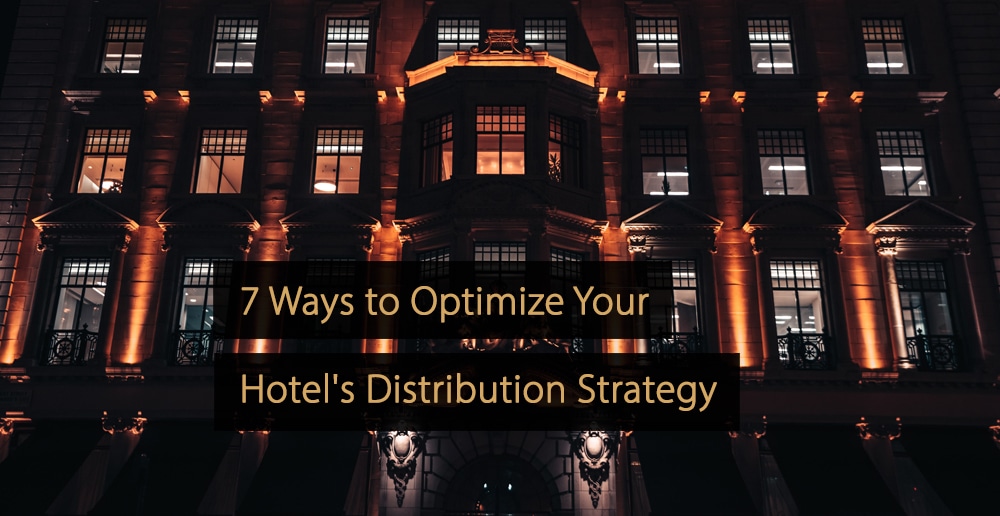What to Do When Your GM Wants You to “Fix” the Forecast
Forecasting is never easy—but it gets a whole lot harder when someone asks you to "adjust" the numbers. If your General Manager (GM) pushes for a rosier picture than the data shows, how do you stay realistic without rocking the boat? In this article, we'll walk through how to handle the pressure, maintain integrity, and turn tricky conversations into alignment. The Reality of Forecasting Pressure Let's be honest: every hotel wants to beat last year's
What the Luxury Traveler Really Wants – And How Hotels Can Deliver
Luxury travelers have redefined what exceptional service looks like. It’s no longer about excess—it’s about ease, control, and relevance. High-value guests aren’t looking for endless choices or over-the-top service. They want seamless, intuitive experiences, and they’re willing to pay for them. The hotels that understand this aren’t just elevating service; they’re creating deeper loyalty, driving higher spend, and unlocking new revenue opportunities. Less Choice, More Relevance Luxury isn’t about offering more. It’s about offering the
What Practices Make a Hotel Booking Process Effective?
Question for Our Hotel Marketing Expert Panel What Practices Make a Hotel Booking Process Effective? (Question by Thomas Dieben) Our Marketing Expert Panel Thomas Dieben - Founder, Becurious Tamie Matthews - Revenue, Sales & Marketing Consultant, RevenYou Jacopo Focaroli - CEO & Founder, The Host Kaylie Holley - Hospitality and Tourism Marketing Professional Peter Ricci - Clinical Professor and Director of Hospitality & Tourism Management Program at Florida
What is Yield Management?
Yield management is a pricing strategy commonly utilized by businesses in hospitality, air travel, and other tourism-related fields to generate maximum revenue from perishable inventory (e.g., hotel rooms or airline seats). Here, we answer the question 'What is yield management?' and explain why it is useful for hospitality hotel owners and others. Defining Yield Management In simple terms, yield management is a strategy based on selling to the right customer at the right time for
What Practices Make a Hotel Booking Process Effective?
Question for Our Hotel Marketing Expert Panel What Practices Make a Hotel Booking Process Effective? (Question by Thomas Dieben) Our Marketing Expert Panel Thomas Dieben - Founder, Becurious Tamie Matthews - Revenue, Sales & Marketing Consultant, RevenYou Jacopo Focaroli - CEO & Founder, The Host Kaylie Holley - Hospitality and Tourism Marketing Professional Peter Ricci - Clinical Professor and Director of Hospitality & Tourism Management Program at Florida
What is Yield Management?
Yield management is a pricing strategy commonly utilized by businesses in hospitality, air travel, and other tourism-related fields to generate maximum revenue from perishable inventory (e.g., hotel rooms or airline seats). Here, we answer the question 'What is yield management?' and explain why it is useful for hospitality hotel owners and others. Defining Yield Management In simple terms, yield management is a strategy based on selling to the right customer at the right time for
What Is RevPOR?
Revenue per occupied room, or RevPOR, is a KPI used within hotel management to assess financial performance. As a result, it can play a role in a revenue management strategy. Its main value to hotel owners is in giving them an idea of exactly how much revenue they make from the rooms they manage to sell. Table of Contents: What Does RevPOR Stand for? Why Is RevPOR Important? How Do You Calculate RevPOR? What Is
What Advice Would You Offer to Hotels Choosing Their Tech-Stack?
Question for Our Revenue Management Expert Panel: What advice would you offer to hotels choosing their tech-stack? For example, best practices, features, potential pitfalls, and how to "future-proof". Our Revenue Management Expert Panel Dermot Herlihy - Commercial Director, DUKES LONDON Mariska van Heemskerk -
4 Website Personalization Tips for Luxury Hotels to Increase Direct Bookings
Brand identity significantly influences guests, with an even more significant impact in luxury hospitality, where brand image standards are higher. As a luxury brand, it's crucial to seduce potential guests and entice them to book on your hotel website by providing each visitor with a personalized online experience, with your
6 Ways Your Hotel Might be Missing Revenue Opportunities
You'll probably agree that seizing revenue opportunities is more important now than ever - especially with costs increasing in every area of hotel operations and demand only recovering. Otherwise, your property's profitability could take a severe hit, and its long-term business success may be at risk. Luckily, there are many
3 Ways to Streamline Upselling Across Your Entire Hotel Chain
Once it’s in place, an automated upselling system brings countless advantages, like a more personalised guest experience, increased revenue and a more efficient workflow. Achieving these results at a single property may feel relatively straightforward. But how can you replicate them at all hotels across your chain or brand? 1.
7 Ways to Optimize Your Hotel’s Distribution Strategy
Consistently placing your inventory in the most profitable channels is essential for successful distribution. Yet distribution remains one of the most complex tasks facing hoteliers. Hotel profitability is correlated directly with the deployment of effective distribution strategies, ones that are resilient and adaptable to real-time. Here are a few ways
9 Effective Ways to Improve The Guest Experience
Guest experience is everything. It's what ensures that your hotel will be remembered and a big part of whether a guest will return to stay with you again. You don't need to move mountains or even free up a large budget. The good news is that there are some really












